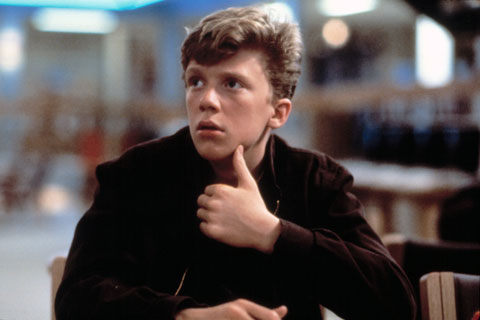
I just got done watching The Player. I had thought it was the first time, and maybe this has happened to you before, but I realized about half way through – “Hey! I’ve seen this movie before!” The first time was in High School, and I remember liking it, but I cannot imagine I understood it enough to appreciate it. A Robert Altman film, it simultaneously pays homage to and satirizes the long tradition of Hollywood movie-making. Just as we might expect from the guy who did Gosford Park, he was a master of laying conversations upon conversations.[1] He also makes use of several movies posters to undergird the storyline, which provide an almost witty commentary to the film’s plot moves.[2] Perhaps most impressively, there is a seven minute shot to open the movie – quite well done – and certainly paying homage to Touch of Evil (Orson Welles) and Rope (Alfred Hitchcock).[3]
The gist of the movie is a “dirt-bag studio exec” (Robbins) who starts getting harassed by a writer he apparently brushed. Postcards are coming, threatening his death. Growing steadily more uneasy by the continued threats as well as rumors that he is soon to lose his job, Robbins attempts to sought out the writer and get him to stop. This turns ugly, and he ends up killing the writer. The thriller ensues. If you want more, go watch the movie.
Now, I want this post to consider a major theme of the movie and then end with a question. As already stated, the film certainly critiques the business angle of Hollywood, making movies with stars and happy endings because that is what makes money, and not caring to represent reality – not caring for art. Over and over in the movie, the writers who wish to make art and commentate on reality are pitted against the studio execs who want to give the public the shallow entertainment they want. This is perfectly exemplified in the scene where Robbins accepts an honor at a party for donating a number of films to the LA museum. There he says something along the lines of: “The media is saying that films are not art, they are entertainment. But they are. Films are art, now more than ever.” But these stirring words are completely contradicted by the shabby shallow ending given to a movie that is developed throughout the film, first intending to end badly and represent reality, then given a blockbuster happy ending complete with witty, BS line. The film will of course, be a success.
My question is, has this changed? This has been a common critique of “Hollywood,”[4] and in the last decade or so (correct me if I’m wrong), we’ve seen the rise of the “Indie Film.” Often these films break the Hollywood conventions and have more gut-wrenching representations and critiques upon reality. Now I don’t mean to imply that it is some kind of shallow generality; Hollywood movies (whatever that even means) can and do represent reality, whereas some Indie films do have the very themes and misrepresentations Hollywood is critiqued for. However, it seems to me that perhaps the semi-recent popularity of the independent productions is because people are aching for the kind of things that are not glossed over, manipulated, or spiced up. They are looking for art that is real, that is almost unapologetic.
What do you think, oh Constant Reader? I invite, of course, any kind of corrections to my thinking – it really is an honest question. You might say, “Oh, Indie films have always been around and you’re wrong,” or “You’re speaking in false generalities,” or “It does not even make sense to talk in these broad categories of ‘Hollywood’ and ‘Indie,’” or all that other good stuff. But it seems like the Indie film has provided both artists and appreciators an arena to enjoy artistic manifestations that are a little more “real” than the common Hollywood pop-archetype. Does the critique of Hollywood in The Player stand true? Are the independent productions filling a void in the film audiences of the American world?
The Player – 3.92-4.6, depending on which aspect of the film we are talking about.
[1] Two things: 1) this is an anachronistic compliment, I know; 2) the scenes at the outside restaurants (the first with Cusack and Houston, the second with Burt Reynolds) are prime examples of this.
[2] My favorite was showing the poster for “M,” then dissolving to a table with a reservation upon it for Mr. “M” – Tim Robbins character is named Griffin Mill.
[3] And interestingly enough, both movies are mentioned during the scene.
[4] And other entertainment industries, such as music, where pop is disdained, and many connoisseurs listen to nothing but underground bands.




